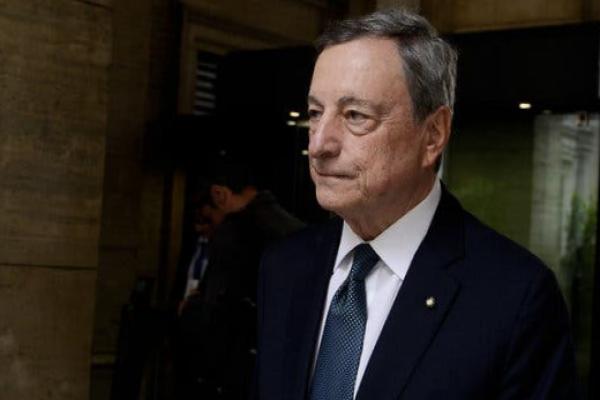Business
Report warns that Europe faces a threat to its purpose due to decreasing competitiveness
The European Union, facing a shrinking share of the global economy, needs to increase its spending by nearly $900 billion a year, according to a long-awaited report from Mario Draghi.
Updated 2024-Oct-04 03:00

Mario Draghi, in a dark suit.
Political disagreements in Germany and France the European Union s top two countries make it harder to fund a long term investment program.
Nicolai von Ondarza from the German Institute for International and Security Affairs questions if the Draghi report can draw attention to the crisis enough to spur the EU into action.
The GDP disparity between the EU s 27 nations and the US has grown to 30 in 2023 up from 15 in 2002 mainly due to lower productivity in Europe.
A significant portion of the productivity difference is due to the fact that certain Europeans choose to work less hours as stated in a report from the McKinsey Global Institute.
For Europe s economy to undergo a transformation the European Union needs to create an industrial strategy that involves a connected energy grid collaborative military purchasing and improved worker training programs.
The report revealed that approximately 25 of European firms faced challenges in recruiting workers with essential skills particularly in management roles.
Europe must increase public investment by nearly $900 billion a year in sectors like technology and defense according to a long awaited report published Monday in response to growing anxieties about the continent’s economy lagging behind that of the United States and China.
The challenge for the European Union is existential Mario Draghi a former president of the European Central Bank said on Monday in Brussels.
If Europe cannot effectively compete and in turn provide its people with security and prosperity he said it will have lost its reason for being.
Mr. Draghi said that to meet the objectives in his report the European Union needed additional annual investment of up to 800 billion euros $884 billion an amount equivalent to about 4.5 percent of the European Union’s gross domestic product last year. By comparison investment under the Marshall Plan from 1948 to 1951 was equivalent to about 1.5 percent of Europe’s economic output. The analysis is the result of a yearlong study requested by the European Commission on the causes of Europe’s competitiveness crisis and it will serve as a guide for policymakers in Brussels who will soon meet to determine the next five year strategic plan for the bloc’s 27 member states.
Conditions that have contributed to the continent’s prosperity have changed substantially since the coronavirus pandemic and Russia’s invasion of Ukraine.
Cheap Russian gas is no longer available and energy prices have soared. Those prices have come off their peak but European companies still pay two to three times more for electricity than U.S. Companies do the report found. The European Union has also acknowledged that it needs to significantly increase military spending.
At the same time growth and investment have fallen behind that of the United States and China the world’s two largest economies which are both engaged in multibillion dollar efforts to expand their tech and green industries.
Europe has experienced weak demand for its exports especially from China and its position in advanced technologies like artificial intelligence is declining: Only four of the world’s top 50 tech companies are European.
Nearly a third of Europe founded unicorns or companies valued over $1 billion that were founded from 2008 to 2021 have relocated their headquarters abroad mostly to the United States.
Armida van Rij the head of the Europe program for the research group Chatham House said that Mr. Draghi’s report was short on details about the source of the enormous investment required to reverse Europe’s economic decline.
Where is the money going to come from? Ms. Van Rij said. That’s really the bottom line of it especially given Germany’s economy and economic situation and finances where perhaps in the past it might have led on that but now it’s just not really in a position to be able to do that.
Another way of raising money that Mr. Draghi favors issuing more common debt is contentious among member states.
It emphasized the EU s reliance on a few key suppliers such as China for vital raw materials urging for increased trade deals and investments in other potential suppliers.
Draghi s report repeated the demand for European countries to collaborate more on the policies they put in place to tackle deficiencies in competitiveness.
Currently obstacles like expensive regulations can be challenging. Simone Tagliapietra a senior fellow at the Bruegel Institute stated The excessive bureaucracy imposed by Brussels recently has posed a significant challenge for Europe s competitiveness.
However the political situation has become more intricate. Far right parties that have displayed animosity towards certain groups.
